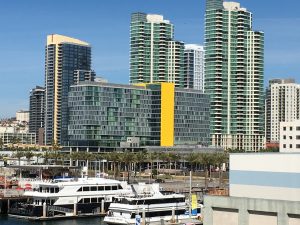As I have perceived the increase interests in property investments in Japanese, I would like to spend some time to share my views on Japanese market. Let me demonstrate as the bullet points analysis.
Priority would be
1 Logistics
2 Office
3 Specific retail
4 Residential
5 Hotel
6 any assets by M&A
I would like to explain and make comments one by one.
1 Logistics

Q Why ? :
A 1: Industry growth, under after Corona new normal, more and more people tend to stay home and rely on e-commerce.
A2 : Trustworthy system: Yamato Transport, http://www.kuronekoyamato.co.jp/en/ , I found this to be the best delivery system in the world. Customers can order very precise delivery time, no delay, and few complaints. On the other hand, however, even though new technologies delivered by smart phone have facilitated logistic systems in other countries, I still feel that Japanese logistic platform has been the most trustworthy one.
A3 : Easy to manage: Usually, single or several tenants, long lease term say 5-10 years, few initial investment & Capex, no large management cost occurs.
A4: Marketability : Before pandemic, J-REITs, private REITs, as well as private funds in Japan had already been keen on acquiring this asset class. The trend would be much stronger in future.
A5: Rent Increase prospects: as tenants get more profitable due to increasing sales volume, owners simply can expect the rental value increase.
Q : Where to invest, -Area suggestion- ?
A: Greater Tokyo area, Greater Osaka -Kansai- area, Greater Nagoya, and Okinawa
As to Okinawa, government has been promoting logistic concentration. Some incentives such as favorable finance, can be expected.
Q: What about the size?
A: several millions to 1-5 billion JPY. Larger ones look competitive and less marketable taking into account the exit.
2 Office

Q: Why:
A1 : Even though telework has been spreading nationwide, so-called Danikai workers, who were born around fifties and now under their retirement age, will have to remain working, due to the lack of workers. They are unlikely to adopt the remote work and prefer face to face communication. As long as they control working environments, the office demand would not be dropped so sharply.
A2: Vertical integration system: In Japan, several companies fundamentally belong to a large business group, such as Zaibatsu, then they prefer nesting in a large S grade office building to maintain their business integration and seek the business efficiency. Otherwise, they simply prefer feeding by each other; group company pay rents to the real estate company under the group. This system would not be changed immediately after the pandemic.
3 Specific retail

Q: What do you mean by “specific retail? “
A: Complex building adjacent to a transportation hub station. In other words, this means the station surrounding asset. In Japan, most people must commute via trains as the system has been well developed and so complete. High shoppers/ commuters concentration can be seen compared to high-end shopping streets or regional malls.
Q: Why?
A1: Convenience and lively attractions that the facility can provide commuting customers.
A2: Flexibility in use; even when those facilities get less customers due to the spread of e-commerce, those facilities might be converted into other use such as residential or hospitals.
Thus, this asset class can be assessed to have less risk of vacancy.
As to other asset classes, I will write on the part 2
Further queries or doubts, please email to ytomizuka@abrilsjp.com










